Premium Only Content
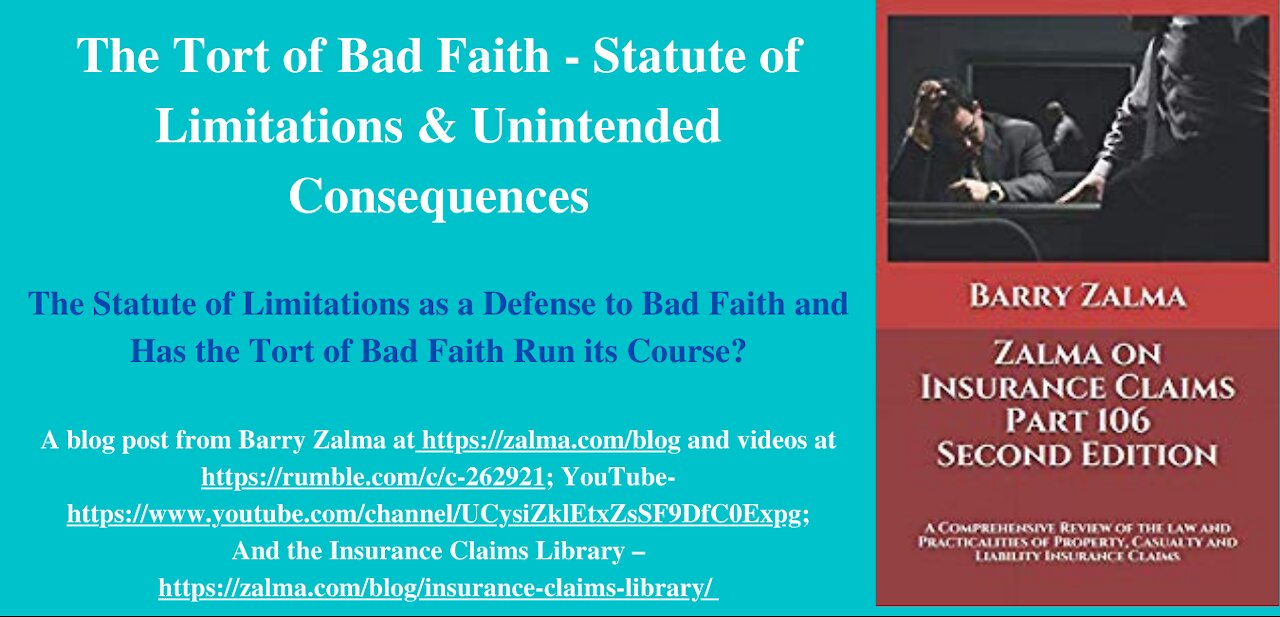
The Tort of Bad Faith - Statute of Limitations & Unintended Consequences
The Statute of Limitations as a Defense to Bad Faith
In West Virginia, for example, a one-year statute of limitations applies to a statutory bad faith claim. Claims involving unfair settlement practices that arise under the Unfair Trade Practices Act, West Virginia Code § 33-11-1 to -10 (1996 & Supp. 1997), are governed by the one-year statute of limitations set forth in West Virginia Code § 55-2-12(c) (1994). [Wilt v. State Auto. Mut. Ins. Co., 203 W. Va. 165, 506 S.E.2d 608 (1998)] .A common law bad faith claim sounds in tort. The statute of limitations that governs a tort action is contained in W. Va. Code § 55-2-12 (1959) (Repl. Vol. 2008).
Has the Tort of Bad Faith Run its Course?
US law was first organized using English common law. When a contract was breached, only contract damages could be recovered. Tort damages were limited to tortious conduct and the two categories of damages were mutually exclusive.
The primary purpose of damages for breach of a contract is to protect the promisee’s expectation interest in the promisor’s performance. Damages should put the plaintiff in as good a position as if the defendant had fully performed as required by the contract. Insurance, like all parts of modern society, is subject to the deprivations of the law of unintended consequences. The law can be defined as the understanding that actions of people—and especially of government or the courts—always have effects that are unanticipated or unintended. Insurance is controlled by the courts, through appellate decisions, and by governmental agencies through statute and regulation. Compliance with the appellate decisions, statutes and regulations—different in the various states—is exceedingly difficult and expensive.
Insurance contracts can be simple or exceedingly complex, depending upon the risks taken by the insurer. Regardless, insurance is only a contract whose terms are agreed to by the parties to the contract. Over the last few centuries almost every word and phrase used in insurance contracts has been interpreted and applied by one court or another. Ambiguity in contract language became certain. However, the average person saw the insurance contract as incomprehensible and impossible to understand. Ostensibly to protect the public, regulators decided to require that insurers write their policies in easy-to-read language. Because they were required to do so by law, insurers changed the words in their contracts into language that people with a fourth grade education could understand. Precise language interpreted by hundreds of years of court decisions was disposed of and replaced with imprecise, easy-to-read language.
© 2021 – Barry Zalma Barry Zalma, Esq., CFE, now limits his practice to service as an insurance consultant specializing in insurance coverage, insurance claims handling, insurance bad faith and insurance fraud almost equally for insurers and policyholders.
He also serves as an arbitrator or mediator for insurance related disputes. He practiced law in California for more than 44 years as an insurance coverage and claims handling lawyer and more than 54 years in the insurance business.
He is available at http://www.zalma.com and zalma@zalma.com. Mr. Zalma is the first recipient of the first annual Claims Magazine/ACE Legend Award. Over the last 53 years Barry Zalma has dedicated his life to insurance, insurance claims and the need to defeat insurance fraud. He has created the following library of books and other materials to make it possible for insurers and their claims staff to become insurance claims professionals.
Go to the podcast Zalma On Insurance at https://anchor.fm/barry-zalma; Follow Mr. Zalma on Twitter at https://twitter.com/bzalma; Go to Barry Zalma videos at Rumble.com at https://rumble.com/c/c-262921; Go to Barry Zalma on YouTube- https://www.youtube.com/channel/UCysiZklEtxZsSF9DfC0Expg; Go to the Insurance Claims Library – https://zalma.com/blog/insurance-claims-library/ Rhe last two issues of ZIFL are available at https://zalma.com/zalmas-insurance-fraud-letter-2/ podcast now available at https://podcasts.apple.com/us/podcast/zalma-on-insurance/id1509583809?uo=4
-
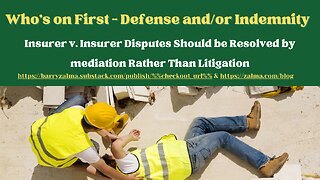 10:17
10:17
Barry Zalma, Inc. on Insurance Law
1 year agoWho's on First - Defense and/or Indemnity
186 -
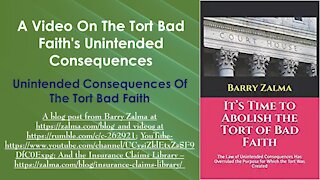 16:14
16:14
Barry Zalma, Inc. on Insurance Law
3 years agoA Video on The Tort Bad Faith's Unintended Consequences
21 -
 0:10
0:10
WSYM
3 years agoThe unintended consequences could be severe for neighborhoods
18 -
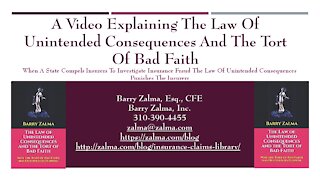 16:18
16:18
Barry Zalma, Inc. on Insurance Law
4 years agoA Video Explaining the Law of Unintended Consequences and the Tort of Bad Faith
33 -
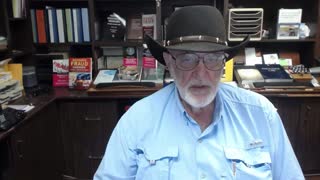 18:10
18:10
Barry Zalma, Inc. on Insurance Law
4 years agoA Video Explaining How the Law of Unintended Consequences Destroyed the the Tort of Bad Faith
54 -
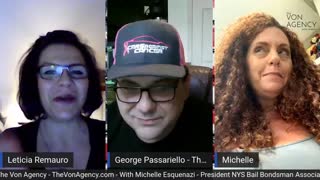 1:02:25
1:02:25
Ask The Experts
4 years agoUnintended Consequences of Bail Reform with Michelle Esquenazi
158 -
 0:59
0:59
NTD News
4 years ago $0.03 earnedRaising Federal Minimum Wage Could Have Unintended Consequences
67726 -
 DVR
DVR
Flyover Conservatives
21 hours agoZelensky Fail... God Called IT!; From Prison to the White House: Angela Stanton King’s Unbelievable Redemption Story | FOC Show
23.7K1 -
 1:06:14
1:06:14
IsaacButterfield
7 hours ago $0.13 earnedFree Speech Is Dead | Did Trump Go Too Far? | Sexist Job
26.6K9 -
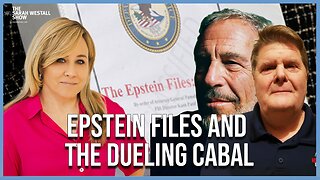 1:02:59
1:02:59
Sarah Westall
9 hours agoEpstein Files, Dueling Cabal Factions and Gold from Ancient Civilizations w/ Dave Hodges
56.3K14